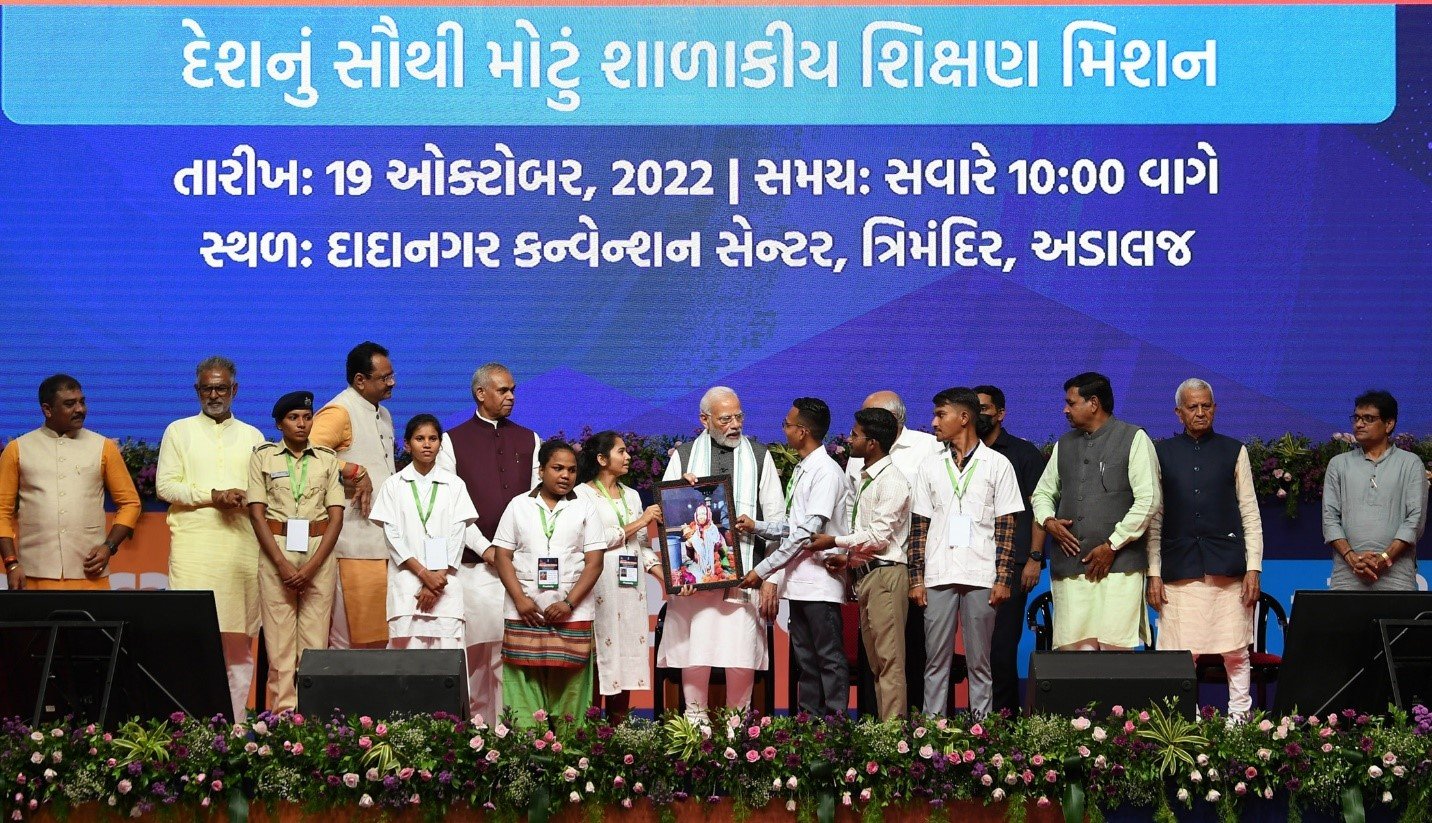Prime Minister Narendra Modi on Wednesday asserted that the New Education Policy (NEP) will pull the country out of the “slave mentality” surrounding the English language.
The prime minister was speaking after launching the Gujarat government’s Mission Schools of Excellence initiative at Adalaj town in Gandhinagar district.
He pointed out that knowledge of English was considered as the mark of being intellectual even though the English language is just a medium of communication.
The PM also advocated the use of local languages to make sure that those uncomfortable with English are not left behind.
“Earlier, knowledge of the English language was considered a criterion of being intellectual. In reality, the English language is just a medium of communication. This language barrier was a hindrance. Many young talents from villages could not become doctors and engineers because they were not well-versed in English,” he said.
“Now this situation is being changed. Now students have started getting the option of studying science, technology, and medicine in Indian languages too. Efforts are underway to make courses in several Indian languages including Gujarati,”, the Prime Minister said.
“We aim to ensure that children of poor parents become doctors and engineers even if they are not educated in English (medium). We want to ensure that no one is left behind due to the lack of the English language,” Modi said, adding the “New Education Policy of the Centre will pull the country out from this slave mentality surrounding the English language”.
Read more: Home Minister Shah releases textbooks in Hindi for MBBS students in MP
CPI(M) says parliamentary panel’s proposal on making Hindi as medium of instruction unacceptable
The prime minister also said that Gujarat has experienced a drastic change in the education scenario during the last two decades.
He informed that in these two decades, more than 1.25 lakh new classrooms were built in Gujarat, and more than 2 lakh teachers were recruited.
Under the Mission Schools of Excellence, the state government will build 50,000 new classrooms and convert nearly 1 lakh existing classrooms of government-run schools into smart classrooms using 5G technology, the prime minister said.
“Recently-launched 5G service will go beyond smart facilities, smart classrooms, and smart teachings. It will take our education system to the next level,” the prime minister said.
“Using this technology, a teacher can impart real-time education to several schools in villages through online mode. Now, the best education and content will reach everyone. Students of villages will be benefited the most because of this initiative.” he said.
He said students can now experience virtual reality, the Internet of Things, and other cutting-edge technologies in their schools with the help of the 5G service.
He said under the Mission, students will be prepared for competitive exams from a young age and also made aware of other subjects such as arts and robotics.


